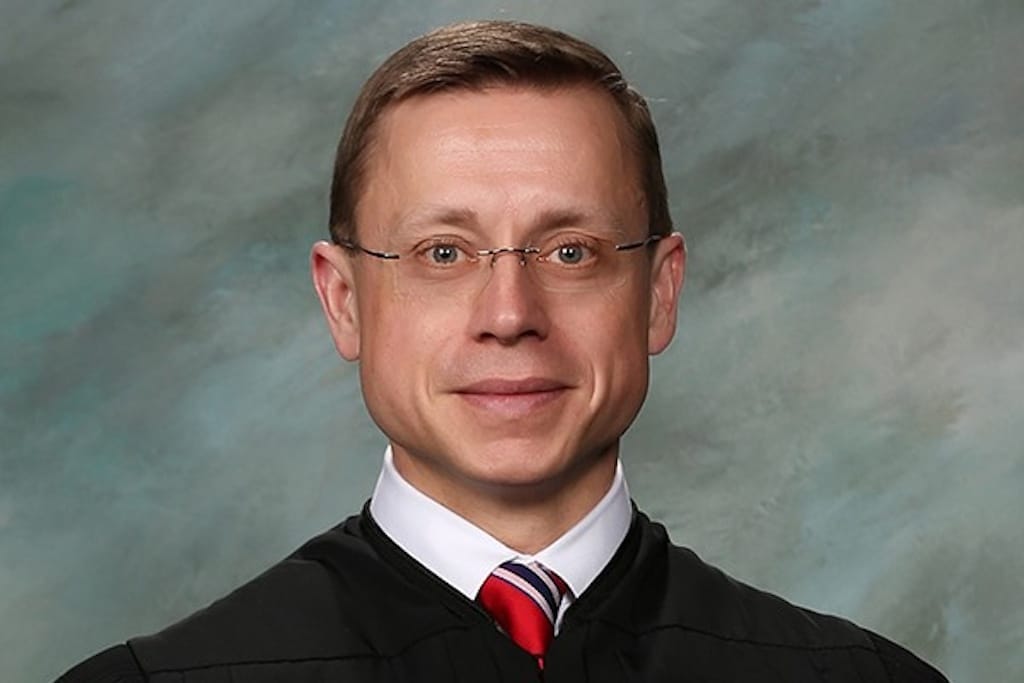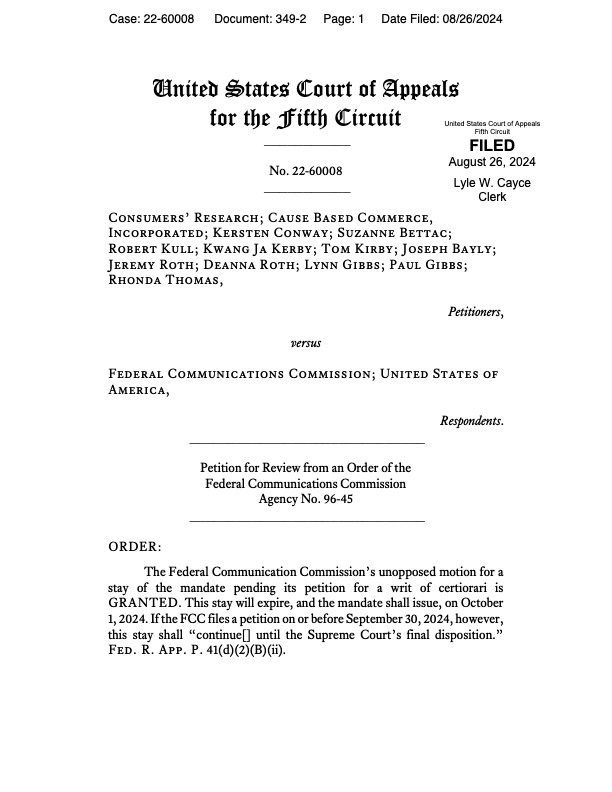Fifth Circuit Pauses USF Decision While FCC Plans Appeal
The agency said it's planning to petition the Supreme Court by Sept. 30.
Jake Neenan

WASHINGTON, August 27, 2024 – The U.S. Court of Appeals for the Fifth Circuit issued an order yesterday pausing its ruling that an $8 billion broadband subsidy program was unconstitutional while the Federal Communications Commission pursues an appeal to the Supreme Court.

Motion for Stay of the Mandate
The agency wrote in court filings that it plans to file that petition with the high court by Sept. 30. If the FCC keeps to that schedule, the decision will stay on hold until the Supreme Court weighs in, either by denying the petition or taking up the case and issuing a ruling.
The Universal Service Fund supports rural broadband infrastructure as well as broadband discounts for low-income households, schools and libraries, and healthcare centers. Set up in 1996, it’s managed by the FCC and funded by fees on interstate voice revenue. The agency delegated day-to-day administration of the program to the Universal Service Administrative Company, a non-profit established and overseen by the agency.
A full panel of Fifth Circuit judges ruled in July that the scheme was an unconstitutional mechanism that usurped the taxing power of Congress It reversed a previous ruling from a Fifth Circuit panel and broke with two other circuit courts that had found the program passed legal muster.
The decision – which remanded an FCC proceeding in which a conservative nonprofit challenged the Q1 2022 USF contribution factor – was slated to go into effect September 16.
The FCC wrote in its petition for the stay that the decision, “if implemented, could have catastrophic consequences for the most vulnerable among us, severing vital communications connections to education, medical and emergency services, and civic life— ultimately isolating citizens in rural and remote communities across the nation.”
The agency argued that potential disruption, in addition to the conflicting circuit decisions, was good cause to hold off on implementing the decision until the Supreme Court weighed in. Government lawyers wrote ISPs would likely seek refunds on USF fees collected since the quarter at issue and try to avoid paying in the future.
“If this Court issues the mandate before the start of the fourth quarter, carriers will likely argue that they are no longer obligated to make universal service contributions because the FCC and USAC lack authority to collect such payments,” the agency wrote.
Consumers’ Research, who challenged the fund, did not oppose the FCC’s petition. The group separately went to the Supreme Court and asked it to reconsider a previous decision not to review cases upholding the USF’s funding regime.
If the agency doesn’t file a petition with the Supreme Court by Sept. 30, the stay will expire and the ruling will go into effect, Fifth Circuit Judge Andrew Oldham wrote in yesterday’s order.
Industry analysts have said the conflicting circuit opinions makes the Supreme Court likely to grant the FCC’s upcoming petition. New Street Research’s Blair Levin wrote after the decision he expects the high court to side with the agency, noting justices have nixed other Fifth Circuit cases that would upend existing precedent.









Member discussion